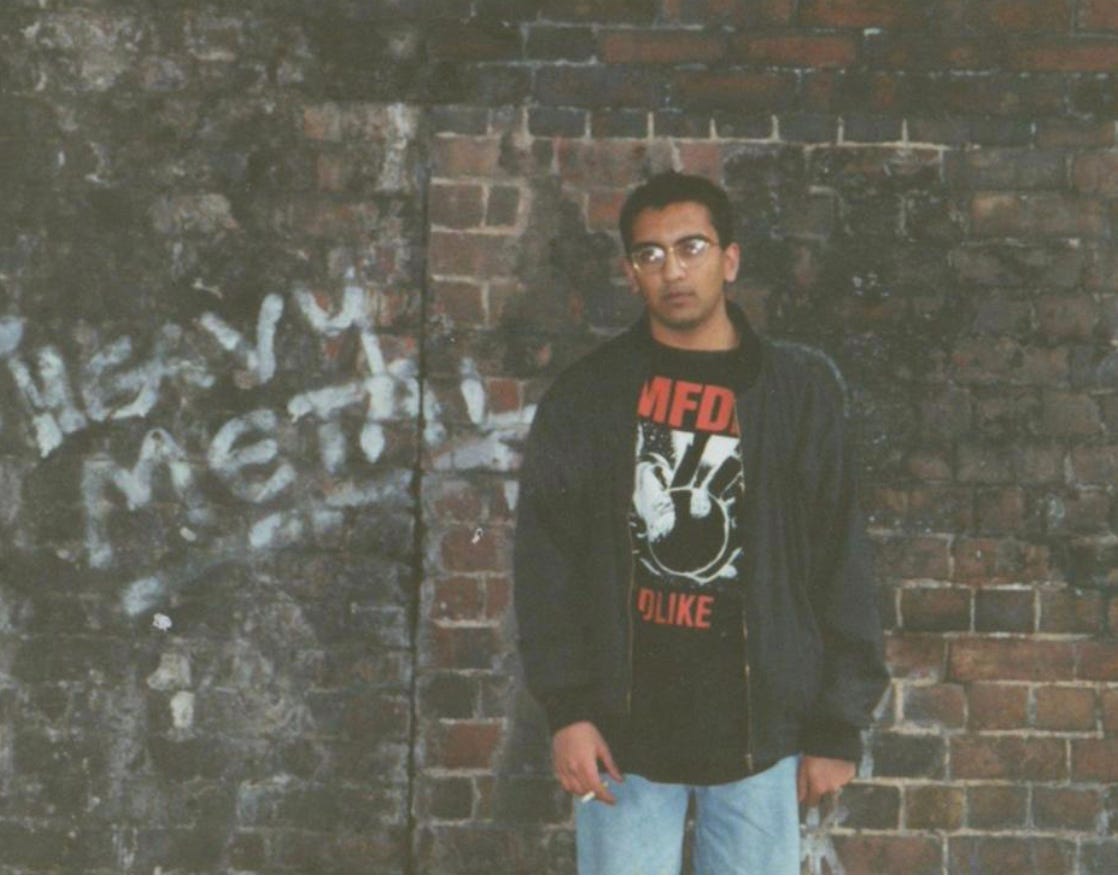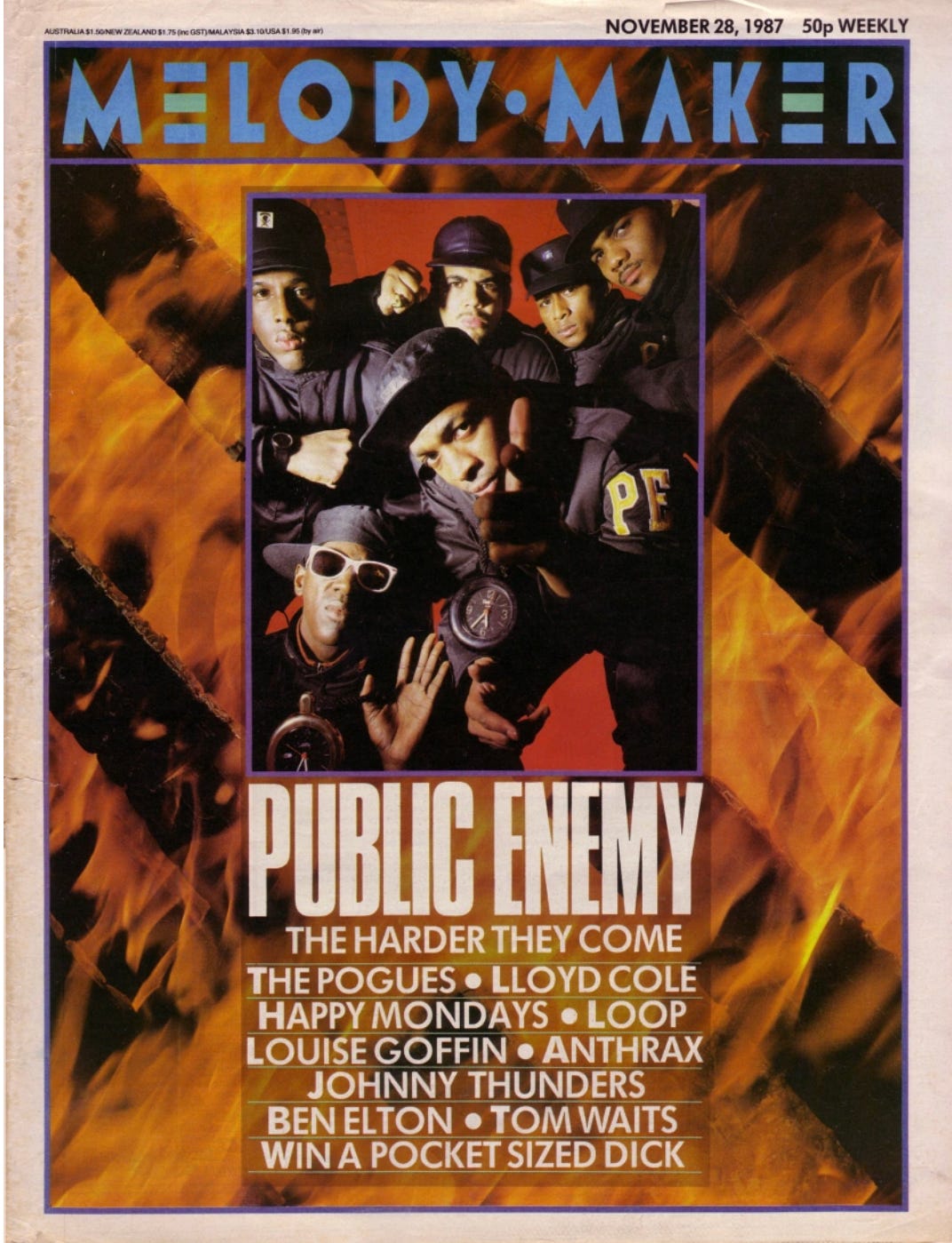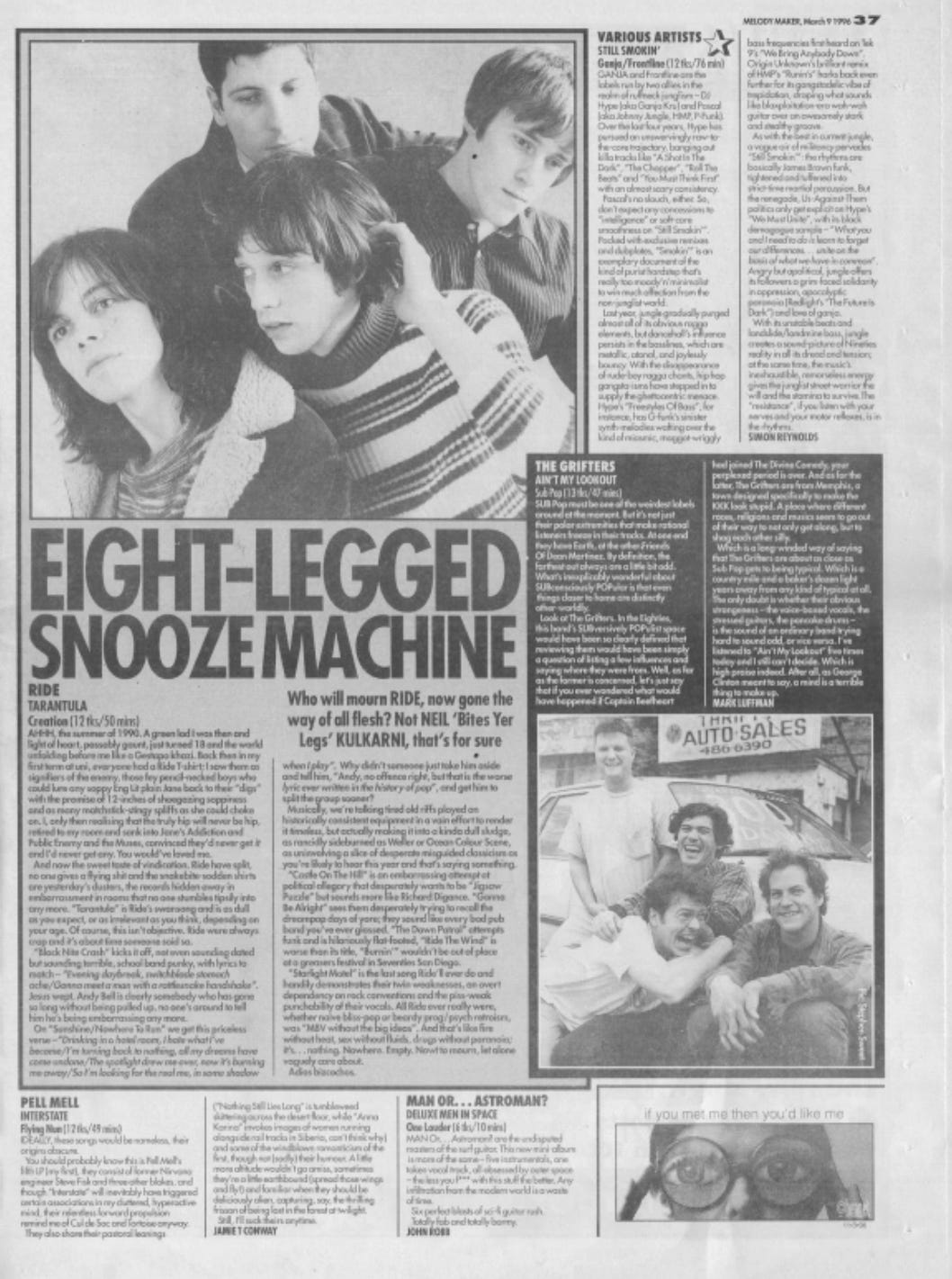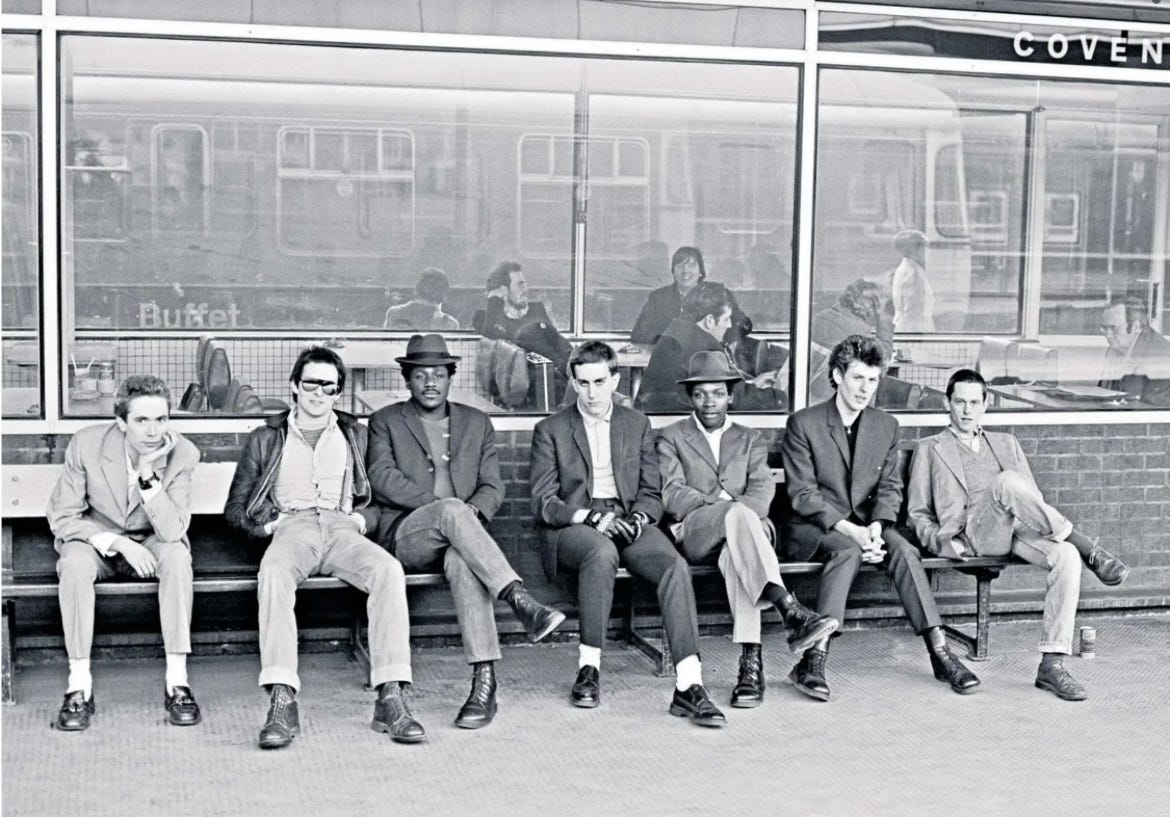Without Fear
On Neil Kulkarni's Eastern Spring
Music criticism is a tricky thing; both constant and occasional, moving with a fast-replenishing facet of culture and always tailing the moment. As oddly, following music in writing means that many of our most-read authors leave no central testament, scattering breadcrumbs for an oeuvre. This is the work, obscure before it’s even controversial; which it often is. Music critics aren’t perceived as having theses, rather biases; and are frequently placed in contradiction to the artists and scenes on which they dutifully report. It’s a minefield of a vocation, and for all of our familiarity with their taste, it’s unusual to have a sense of a working critic’s life and convictions.
In this respect, Neil Kulkarni was rare. For all his many hundreds (thousands?) of reviews written over the last thirty years and distributed across dozens of venues, Kulkarni had a project—madly polemical and deeply moral, even moralizing, in pursuit of the music; a truly global itinerary before which he remained all ears. Kulkarni wasn’t just opinionated; he wrote as a partisan of the Real—one who, having heard some of the greatest music ever made, simply refused to forget what he knew.
Anyone who has read Kulkarni can immediately think of a favourite record he illumined, or a pet text that he trashed; knowing that to rock for light means kicking at the pricks, and that true lovers loathe as strongly. But if you haven’t read him, where to start? Once more, this is the difficulty with reviewing, which litters disconnected letters over seasons of releases without beginning or end. But Kulkarni, in his rush to tell, spares us the dilemma of introduction.
Eastern Spring: A 2nd Gen Memoir is Kulkarni’s most personal text, collecting a series of essays written for the Quietus in 2011 and hovering some place between mid-life confessional and cultural prosecution. And if Morrissey’s Autobiography can debut as a Penguin Classic without proofreading, then Kulkarni’s memoir ought to be as widely read; as an indignant run-on sentence, idiosyncratically arch and archly English—though the similarities likely end there.
For starters, Eastern Spring is relatively thin in anecdote—“memoir” here denotes the individual perspective on a density of historical factors, from parentage to old religion to political economy. Before coming to young Neil, “born in Walsgrave hospital 72 and back to Wood End, Coventry,” we read of Sanskrit poetry; of 1950s Marathi cinema; of the death of vocalist Bhimsen Joshi; and of the long arc of “western” reception for some of the grandest music ever performed. By the time of his narrative birth, Kulkarni has already foreclosed upon and resurrected the premise, and promise, of pop music several times over, and initiated one of the fiercest polemics against cultural imperialism in recent memory.
As one expects, Kulkarni’s self-account begins with sound—firstly and most exquisitely, the Marathi song that scored his childhood and followed his parents from Mumbai to the English Midlands. This tale, however, begins thousands of years earlier, in the Vedic rituals that Kulkarni situates amid ancient migrations and slow cultural exchanges all but disavowed by religious purists. “What strikes me,” he writes as he contemplates the key texts and textures of his youth, “is how the entire Hindu ‘faith’ is a song passed on.”
For Kulkarni, the mantra has an ulterior, secular life as pure sound, even preceding the assignment of spiritual significance: “not language then, but perhaps music, which, like ritual doesn’t need meaning to exist.” In this account, a given musicality transpires by way of religious custom, but is irreducible to any wisdom tradition in particular; and the mantras of Kulkarni’s upbringing are not so much vestigial as reimbued with local meaning: “something that though incompatible with the modern world still warrant(s) remembrance and absorption.”
Kulkarni’s historical sense is musically motivated, a throughline which mediates subjective experience and objective chance; and his account of Vedic song as it arrives in secular form amid the townhouses of Coventry implicates a longer reckoning, with the newly apparent spectres of Hindu nationalism and the social intricacies of casteism, even as it privileges his family. Where the complex productions of race are often binarized, implying a gradient of relationships somewhere between the black and white, Kulkarni offers a robust, multiply determined account of race-as-racism; a hall of mirrors that are also always walls.
You’re taught scantly at school that racism is about flashpoints, marches, riots, moments in history and figures in history, a boxed-off notion of race that includes Gandhi & MLK & Eichmann & Mandela that enables the ruling structure to safely kick race-hate into a touch-zone beyond itself, a problem for other countries, other times. What you learn fairly sharpish growing up coloured is that racism is a colder, more ever-present and steadily debilitating thing than that, a daily build-up, a constant sweeper of your legs and puller of the rug beneath yr identity, an endless, tiring, eternal part of your circumscribed mortal life.
Kulkarni writes with ever-present fury and careful specificity about race, diagnosing a contemporary Maharashtrian far-right alongside a constitutively English racism that finds its apogee in organizations like the National Front and EDL, but afflicts the minutest gestures of schoolchildren and shopkeeps: “UK racism (is) less a tribal thing than it is an institutional thing,” Kulkarni explains: “easy to spot in the skins and punks and the NF but more pervasive as a gentlemanly assumption of racial superiority that informs everyone from the kids who battered me in Ernsford Grange to the grown-ups who tell me I’m over-reacting the rest of my life.”
Against this backdrop of ambient hostility, Kulkarni describes his retreat into the music, as the teenaged hermitage of a critic’s apprenticeship takes on fugitive significance. Indian classical music remains a staple, along with Northern Soul, the Rolling Stones, and Prince; reggae and dancehall, a counter-commonwealth come everywhere to roost; and finally, the sounds of hip-hop, which “lifts the whitewash” from his vision:
Bereft of anyone from my background answering my turmoil, hip-hop like Public Enemy & Ice Cube & Ice T from the States, and Gunshot, and Ruthless Rap Assassins & Black Radical Mk II from the UK filled in the gaps in my knowledge, pointed me towards a wealth of reading and listening that finally started answering some of the questions I was having about racism, the white power structure, the history of hate that I felt we were still always living through, even as mainstream culture was pretending those wars were over.
Hip-hop will become Kulkarni’s bread and butter, and his writing makes a passionate, compendious attempt upon its breadth. This music, Kulkarni writes in his Periodic Table of Hip Hop, “is a revolutionary way of thinking and being that changes your life and saves lives on a daily basis.” In the personal polemic of Eastern Spring, this world-historical life preserver arrives amid a “torment of shattered identity,” offering the author space for “thinking about race without fear.”
Where Asian representation in European popular culture is nil to nominal in this period, hip-hop invites identification. Kulkarni writes beautifully, with wounded pride and underdog diffidence, of the complex registration of race in the UK, where South Asian identity functions differently vis à vis anti-Blackness than in the United States, inviting open affinity with rap as a Black avant-garde. On this topic as throughout his writing, however, Kulkarni is allergic to essentialism, and refuses to arrest the global culture of hip-hop at any point in its development for easy appraisal, nor to efface its mature roots. This care is the mark of a true participant in the music, whose work consistently ennobles the critic’s role as more than a passive recipient.
In this calling, Kulkarni joins a lineage; and the most rhapsodic writing in Eastern Spring concerns his bibliomaniacal attachment to Melody Maker and its slate of stylish, disputatious writers—Simon Reynolds, David Stubbs, Carol Clerk, and many other larger-than-life bylines. “In stark contrast to the needy, party-crashing tactics of today’s press, these were writers stylistically bold enough to exist in their own space and drop their own atmospheres onto you & into your life whenever you started reading them,” Kulkarni waxes fanatically: “After a while you could spot them a line in, their voice, their hold on your heart and head.”
This is dearly relatable to me; I grew up with greater access to books and magazines than to records, and it was typical for me to read about musical subcultures far before encountering any primary media—compiling mental lists of likely affinities from photographs and reviews in order to search out artists at a later date. This involved a lot of guesswork and a sense of implicit trust in several outlets and their writers. My canon was admittedly less cool than vintage MM, but included several rags to which Kulkarni was a key contributor; an underrated chain of transmission that is somewhat exploded today.
Never mind that people even slightly younger than myself will never have the shock of hearing a long-coveted album and feeling put out, or exhilarated, at its incongruity with expectation; the gap between intrigue and acquisition has closed to a span of seconds, and is even inverted where most people listen submissively by way of streaming. As monopolistic subscription services complete the enclosure of independent music, the multi-authored, yet authoritative, special interest magazine has all but vanished; look at what’s happening to Pitchfork. It isn’t that nobody writes about music, but that we’ve been dispersed—I have two dozen subscriptions to individual writers’ newsletters, for example, rather than a weekly ritual around a single collaborative object.
Kulkarni was diligent in annotating these developments, with a militancy beyond cantankerousness; but his writing explicitly changed after these trends, too. In a 2022 post, ending “a great year for music (and) a terrible year for musicians,” Kulkarni responds at length to a good question: why doesn’t he “do slag-offs” on Substack? After all, his reputation has as much to do with his ecumenical taste and encyclopedic appreciation of hip-hop as it does with his gift for brutal, abrupt dismissal of fêted (fetid?) pop: Ride’s Tarantula is an “eight-legged snooze machine”; Green Day “are IN FEAR of rock”; and Kelis—yes, ‘Milkshake’ Kelis—occasions a four-thousand word screed on the collapse of personality in art. Truthfully, I always thought that this was easy fodder and largely beneath him; though his caustic, one-take shutdown of Ned’s Atomic Dustbin may qualify as a significant prose poem in its own right, context notwithstanding. Kulkarni was an inveterate hater, but seemed to temper his attack for a digital épistémè:
Partly it’s down to how no single album deserves that much negative attention anymore because single records can’t damage a wider culture that way anymore. Audiences can slip between musical worlds with such agility now, consensus is barely there, and certainly not in the depressingly mammoth-blockbuster ways it was in the 90s and even 00s.
Mainly though it’s down to power: whenever I used to slag off a band or album it was always from the innate understanding that THEY had already WON. THEY were signed, THEY were making a living out of making music, THEY had WON. So this poxy little twat taking potshots from his Coventry hovel was always punching up.
Today, he continues, nobody is making a living; the pay-to-play economics of the new music industry have squeezed out all but the children of the bourgeoisie, and the rest subsist as if busking. Kulkarni doesn’t quite finish his thought; but instead of slagging off individual artists whom he deems insufficiently committed, he appears to strike a different balance of tone, better suited to the moment—that is, praise of noteworthy albums, a priori underrated, and blanket contempt for the market where these compete for fleeting acclaim. Today, Kulkarni says, “EVERYTHING gets 3-4 stars out of 5, everything that gets covered is cheerleaded … and that utter absence of discernment means only those with PR/Biz connections strong enough to exert critical consensus will get through the fuzz and the static.”
It’s a nearly formal decision: where criticism has become indifferently laudatory and attention means approval, Kulkarni hones in on those records which merit the privilege of both. This micro-evangelism corresponds to the situation of the self-motivated—frequently self-publishing—critic; who, assigned nothing and without a beat, is no longer obliged to stage a demonstration against massified crap.
At times, Kulkarni’s cultural diagnoses felt too grim, in contrast to the palpable delight in human creativity that drives his positive reviews and articles. Even Eastern Spring, where he sets the agenda, begins from a standpoint of professed boredom; not the jaded boredom of the seen-it-all connoisseur, nor the pent-up angst that motivates youthful rebellion; but an end-historical ennui at the self-referential decadence of pop music in the digital era—“when the web seems to no longer be a launch pad into music, rather the ground we imprison it upon.”
Accepting this opinion, Kulkarni’s persistence in small acts of artistic discernment feels downright heroic. Where differences no longer make a difference, Kulkarni continued to write as if musical experience, even confrontation, was possible and desireable; waging a war of taste almost anachronistic in its intensity. With this agenda in mind, we shouldn’t portray the alternation of bitter hit-pieces and warm invitationals as the work of a mercenary on the beat; rather, for Kulkarni—as for any critic with a program—the likes and dislikes were obverse and co-implicating.
For example, his conception of hip-hop as a formal and political vanguard, transpiring on the side of racial capitalism’s discontents, contrasts his dim appraisal of the Britpop movement that advanced alongside his career at the end of the hateful “Live Aid years.” This opposition isn’t a matter of personal taste, but stages a larger social tension; between English protectionism, shored in the workmanlike repetitions of custom, and the innovations of decolonizing enclaves, as cross-pollinating “winds of change” brought the nineteenth century to an end in the back half of the twentieth.
If his take-downs of pop stars often felt like crushing a butterfly on the wheel, overstating the importance of what is essentially children’s music, his targets in this era surely deserved every barb. Oasis draw laser-sighted ire, as the foremost act of the “English Rock Defense League”—Kulkarni’s apt assessment of the laddish, faddish 90s rock revival. Steeped in unseemly nostalgia and guitar chauvinism, donning the Butcher’s Apron as a fucking poncho, Oasis typified reactionary British culture as they sold a cartoon working class identity upmarket. Even today the Gallaghers enjoy an industry sinecure, and their racist, curmudgeonly omnipresence in the tabloid press vindicates Kulkarni’s resolve to see their rise as a harbinger of the new right: “Tory music. Bigots music.”
As famously, Kulkarni loathed Morrissey—“a Granny of a man”—with withering consistency, even since the sainted Smiths. But in contrast to his stark assessment of Oasis, Kulkarni repeatedly credits Morrissey with an insight and significance beyond that of the louts he fetishized: “The injured regret, the post-colonial revulsion of Morrissey’s music is closer to white England’s heartbeat than anyone else will admit to being,” he writes; such that “the Peter Pan of Weltschmerz with his rotating monomania & myopia gives me an honesty about his little Englander mindset that I actually come to prefer over the cowardly political silence of his descendants.” Similarly, I’ve always read Morrissey’s England through the lens of his narcissistic self-loathing; as a vision of imperial decline, however partial the unpleasant artist to those waning ways. The best evidence of Kulkarni’s “honest” Moz appears throughout Your Arsenal, a glam rock opera about fascist recruitment from familial neglect, on which he sings in character:
We may seem cold
Or we may even be the most depressing people you've ever known
At heart, what's left, we sadly know
That we are the last truly British people you've ever known
We are the last truly British people you will ever know
You'll ever, never, want to know
As a concept album, Your Arsenal as soon diagnoses the present-day alt-right and its cultural vectors. I find it moving, particularly in its hard-edged portrayal of the feyness that Oasis rebuffs; but that’s another essay. Kulkarni’s queasiness at Morrissey’s performance of race not only stems from songs like ‘Asian Rut’ and ‘Bengali in Platforms’; it concerns the singer’s monopolization of British identity under the banner of whiteness. By comparison, Kulkarni’s self-professed Englishness tarries with negativity and dislocation, repossessing pride from opposition. “In a lot of ways I AM the Asian Morrissey,” he confesses; seeking an artful revenge upon mediocre surroundings: “As a strategy, pursuing Englishness to the point where I’m an extreme new form of Englander is something that eventually precipitates me becoming a critic, informs what criticism I offer.”
For our budding extremist, this identity transpires by way of words: “To this day, the English language is the thing I love most about England, the thing I see as emblematic of what truly makes us great, our ability to absorb and take on influence from everyone we come into contact with.” Here I think of poet Derek Walcott’s declaration that “the English language is nobody's special property”; or more pertinently, Chuck D: “the English language had taken over the world, so we thought: why not plug hip-hop into it? Bringing rap to the UK was our British invasion.”
This alternative Englishness, forged in dissidence, isn’t a matter of style or philology alone; as Eastern Spring becomes a pre-Brexit manifesto for a grassroots cosmopolitanism, its author’s transvaluative attempt upon the village trappings of an increasingly parochial society assumes a patently local and collectively embodied form. The essays double as love letters to Kulkarni’s hometown of Coventry—“a post-war experiment in social engineering gone feral, a medieval whisper, a madhouse.” In flashes, Coventry appears as both a socially constricted labyrinth and a place of cross-cultural encounter; a city of violent contrasts, one-time home to anti-imperialist martyr Udham Singh and prominent neo-Nazi Colin Jordan, who spent much of his life in the suburb of Eastern Green.
But Coventry—like Mumbai, he says—“is a place where you have to work fucking hard to be a racist.” It’s worth sitting with this deceptively simple claim, which runs counter to a patronizing liberal account. As bourgeois sociology would have it, here as in the UK, race hatred is a unique affliction of the under-educated and principally lumpen elements of society, and must be unlearned on ascent. The rabble are to be disabused of their native prejudice, and herein lies the work.
Kulkarni tells us that this simply, evidently isn’t so. Rather, the upkeep of a racist disposition is a gruelling, conflictual work—perhaps not a work with which one is identified oneself, but a work already having transpired on one’s behalf; a kind of dead or conceptual labour that furnishes every local bigot his abode. And still racism remains a dissonant slog, for which one is responsible each day. I linger here because for me, this quick twist on a harmful truism unlocks Kulkarni’s worldview—in which banality is active and must be as actively opposed.
Kulkarni maps a different agenda onto Coventry’s evolving body politic, and its status as a “test case” for post-war suburbanism. “Cov gives me what little pride I have,” he writes: “Proud to have stayed in the wonderful city that gave my wondering parents a home, proud to be from a city whose only constant is its constant racial change, the constant ruination of its projected future.” And where the occasion for his outreach is always music, Kulkarni finds a ready emblem of this détourned civic pride in the two-tone movement and its class-conscious, multiracial coalitionism—joyously voiced by groups like the Coventry Automatics, AKA the Specials. Compare this feat of cognitive mapping to almost any desolating post-punk ritual of the time:
‘More Specials’ is still such a cutting record for Coventrians because it so perfectly evokes that mix of 60s tastefulness and contemporary degeneration, how it feels to be progressively impoverished as a people whilst living in already-dated future dreams of sophisticated urbanity, how those messy bits of your family’s past, particularly how race has played a role, become things to wear with real pride when you’re constantly cattle-prodded into a future that seeks to iron out all difference.
Brimming with vigour, both possessive and proselytizing, this is Kulkarni at his best; periodizing timelessness and weaving his case for a favourite record into the fabric of common reality. In this embedded, immanently autobiographical appraisal, the Specials aren’t just a representative but a determinate band, focusing their moment for the listener as only great art can. Needless to say, I include great writing about art in this calling.
With the passing of Neil Kulkarni, there goes a true fan; one who ennobled the mission of listening, and whose words still cut and clarify. I’ve spent the last week playing many records that he’d praised, some only months old; but I keep returning on the need to both protect and recollect the archive of his words, however dated or dashed off—for future use against a worse recurrence of reactionary trends, and then because he’s still the guide to all the songs we’ll never hear enough or finally. In a mode of writing that greets nebulous reception, he risked ethical consistency, never apart from taste; and as tastes changed, he stayed trusted.
“Soon the critic dies,” Kulkarni writes. “But before then a handshake, a farewell.” (It’s weird to read the end of Eastern Spring this week.) “Because we’re living proof that growing up never was about finding out who you are. Just about making sure who you aren’t, who you’re not gonna stand alongside, who you’re going to share your impure bastard-past and fucked-up future with. Sorry to have kept you so long.”







